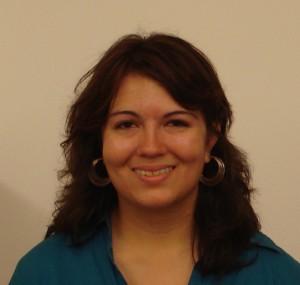 Histories of the Internet – Call for Papers
Histories of the Internet – Call for Papers
This is a call for papers for a Special Issue of Information & Culture: A Journal of History (Volume 50, Issue 1, February-March 2015). For the latest and most complete information on the special issue please see www.sigcis.org/InternetIssue.
Guest Editors
William H. Dutton, Professor of Internet Studies, Oxford Internet Institute, University of Oxford, and Professorial Fellow, Balliol College
Thomas Haigh, Associate Professor of Information Studies, University of Wisconsin–Milwaukee
Andrew L. Russell, Assistant Professor of History, College of Arts & Letters, Stevens Institute of Technology
Deadlines
Abstracts can be submitted to an editor of the special issue for informal feedback until 1 March 2013: e-mail: William dot Dutton at oii dot ox dot ac dot uk.
Full papers should be submitted to the managing editor, George Royer, for review by 30 August 2013.
The Call
The increasing importance of the Internet, Web and related information and communication technologies, such as social media, has made it ever harder and ever more important to understand their history. Many authors have traced the timelines of technical developments, and a growing number of books have been written about the social history of the innovations that comprise and enable this network of networks. Scholars disagree over the very definition of the Internet and its history as a set of protocols, a large technical system, an infrastructure, or ensemble of technologies.
The editors invite original, scholarly treatments of the history of the Internet that critically examine common assumptions about its origins and developments over the decades. Submissions could take any number of approaches, including:
•Broad historical perspectives on the Internet’s development;
•Historical case studies of particular developments, such as ARPANet, TCP/IP, the World Wide Web, or Facebook;
•Accounts of computer and communication networks, such as Open Systems Interconnection, online services, the European Informatics Network, and digital mobile telephone networks that contributed to or anticipated aspects of today’s Internet but did not use Internet technologies;
•Regional histories of Internet adoption or innovation;
•Studies of an institution, such as ICANN, W3C, or Internet Governance Forum;
•Explorations of an event, such as the dotcom bubble;
•Critical analyses of scholarly or popular narratives about the Internet’s history.
These are only illustrative of possible approaches, as we would welcome creative approaches to the history of the Internet that go beyond these specific examples.
About the Editors
William H. Dutton is Professor of Internet Studies at the Oxford Internet Institute, University of Oxford, and Fellow of Balliol College. Before coming to Oxford in 2002, Bill was a Professor in the Annenberg School for Communication at the University of Southern California, where he was elected President of the Faculty, and remains an Emeritus Professor. In the UK, Bill was a Fulbright Scholar, then National Director of the UK’s Programme on Information and Communication Technologies (PICT), and founding director of the OII during its first decade. He is editor of The Oxford Handbook of Internet Studies (forthcoming 2013), and is writing a book on the Fifth Estate.
Thomas Haigh is an Associate Professor of Information Studies at the University of Wisconsin–Milwaukee and chair of the SIGCIS group for historians of information technology. He has published widely on the history of computing – see more at www.tomandmaria.com/tom.
Andrew L. Russell is an Assistant Professor of History and Director of the Program in Science and Technology Studies in the College of Arts & Letters at the Stevens Institute of Technology in Hoboken, New Jersey. Russell has published numerous articles and book chapters on the history of computers and telecommunications, and is the author of An Open World: History, Ideology, and Network Standards (forthcoming, Cambridge University Press).
About the Journal
Information & Culture: A Journal of History publishes high-quality, peer reviewed articles on the history of information. The journal honors its (45+ year) heritage by continuing to publish in the areas of library, archival, museum, conservation, and information science history. However, the journal’s scope has been broadened significantly beyond these areas to include the historical study of any topic that would fall under the purview of any of the modern interdisciplinary schools of information. In keeping with the spirit of the information schools, the work is human centered and looks at the interactions of people, organizations, and societies with information and technologies. Social and cultural context of information and information technology, viewed from an historical perspective, is at the heart of the journal’s interests. See: http://www.infoculturejournal.org/about
Submission and Review Process
Full papers should be from 6,000 to 10,000 words, including all notes and bibliography. Shorter or longer papers might be considered in exceptional cases, based on the merit of the case. The editors expect to publish 4-6 papers in the special issue, with any additional papers that merit publication scheduled for journal issues that will appear after the special issue. Before preparing or submitting an article, please check for any updated instructions at www.sigcis.org/InternetIssue.
Authors are asked to please follow the submission guidelines available at http://www.infoculturejournal.org/submissions/submission_requirements. In particular, authors should prepare notes and bibliography in accordance with the journal style. Neither the editorial office nor the special editors should need to make formatting changes to notes or bibliography.
 THE NON-STATE OF QUEER THEORY
THE NON-STATE OF QUEER THEORY
